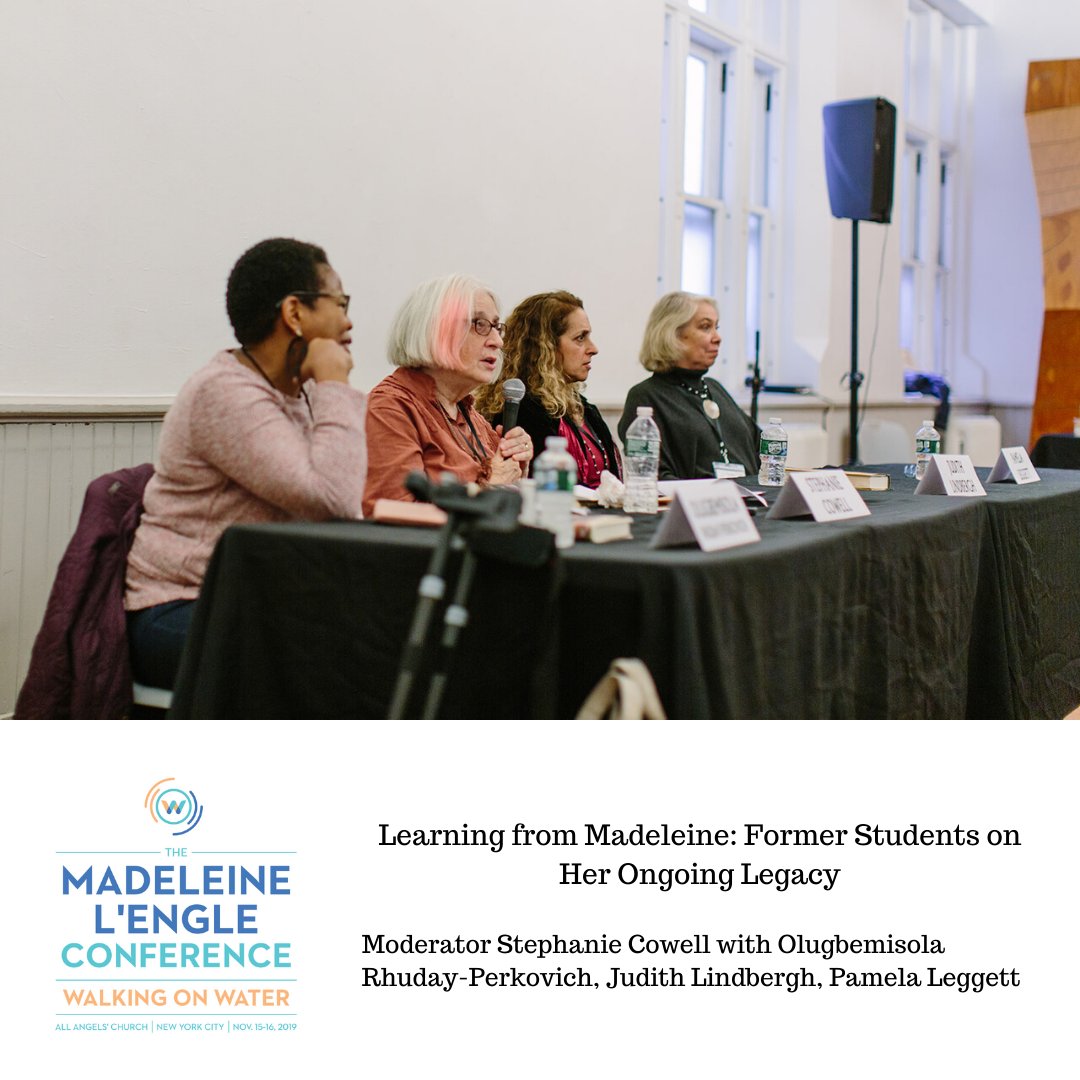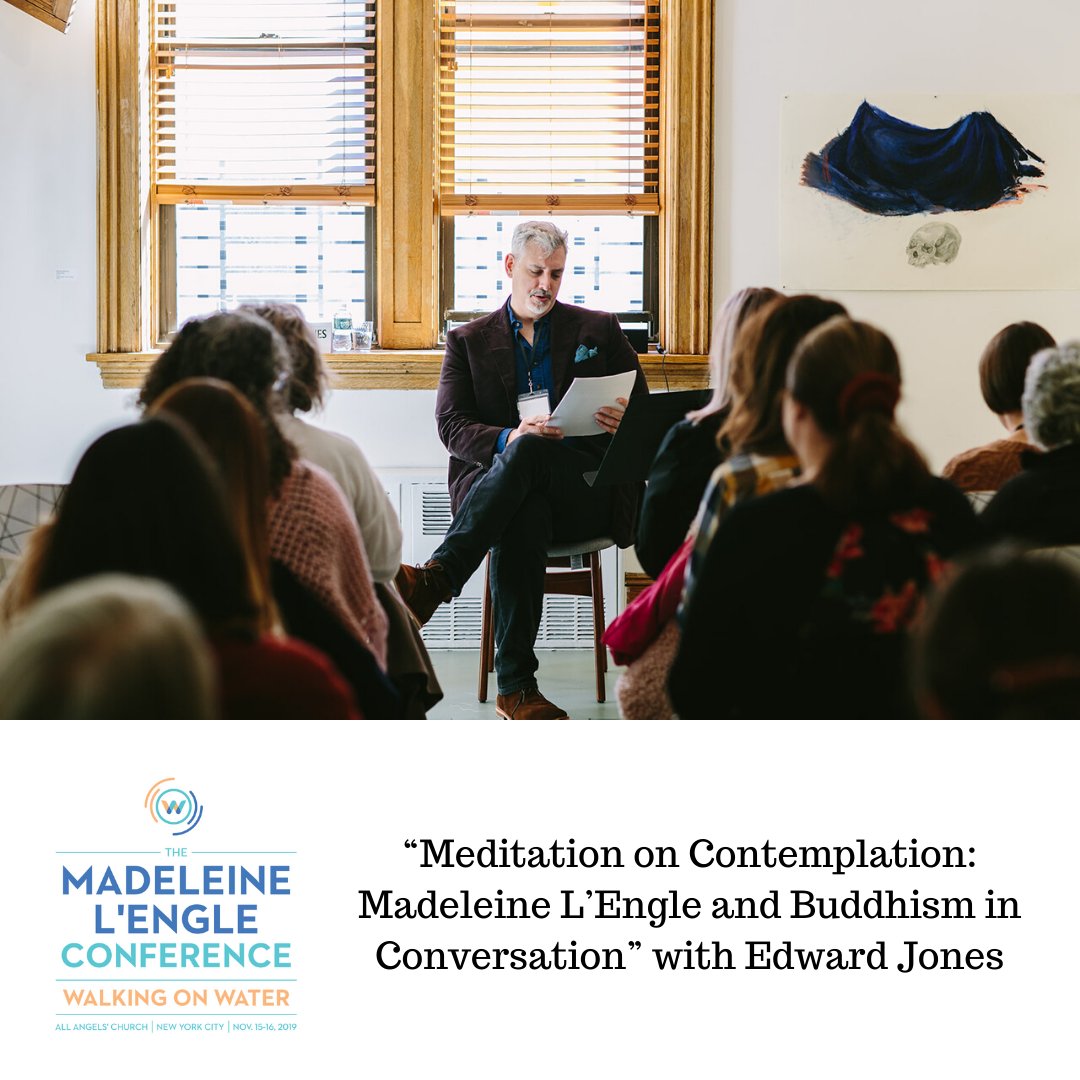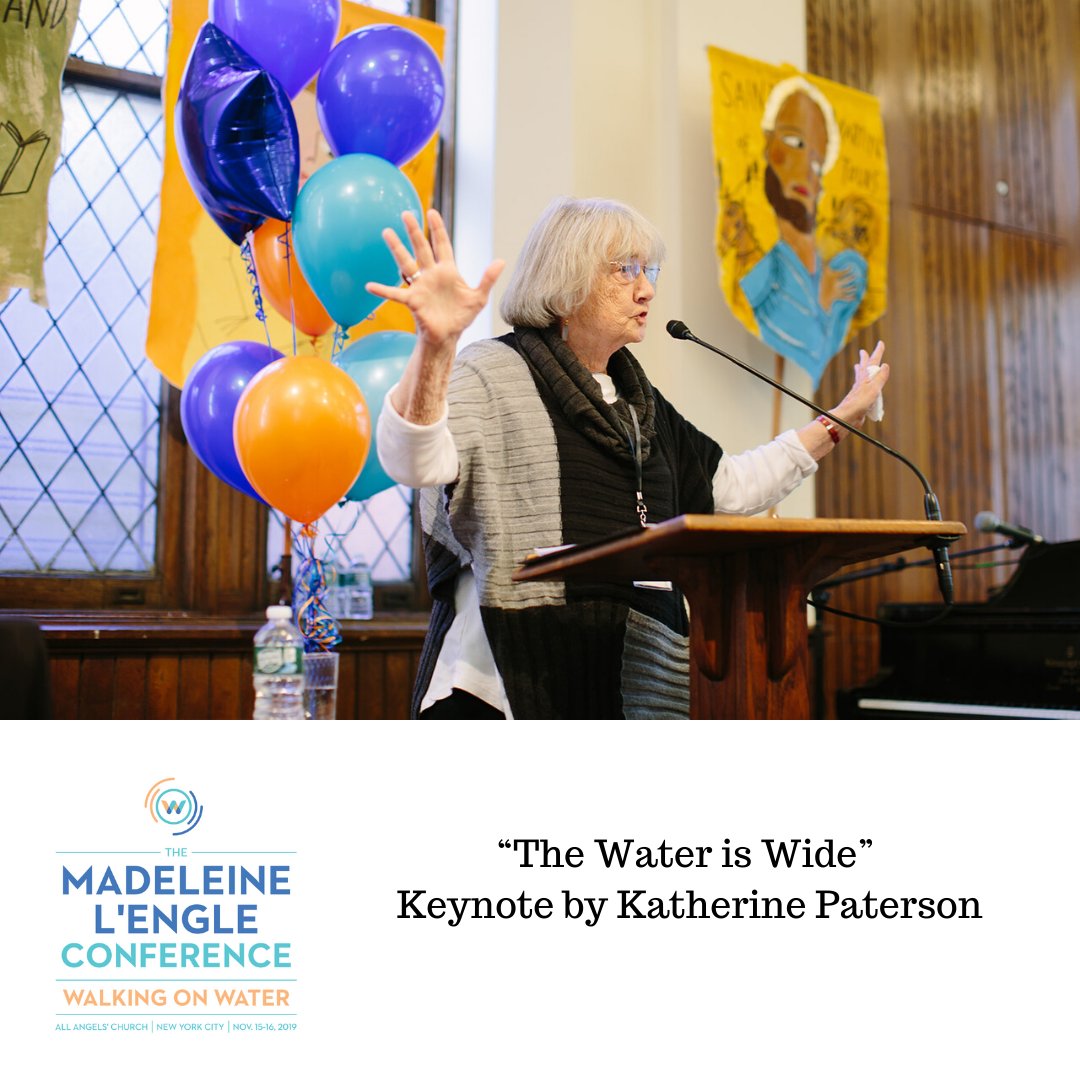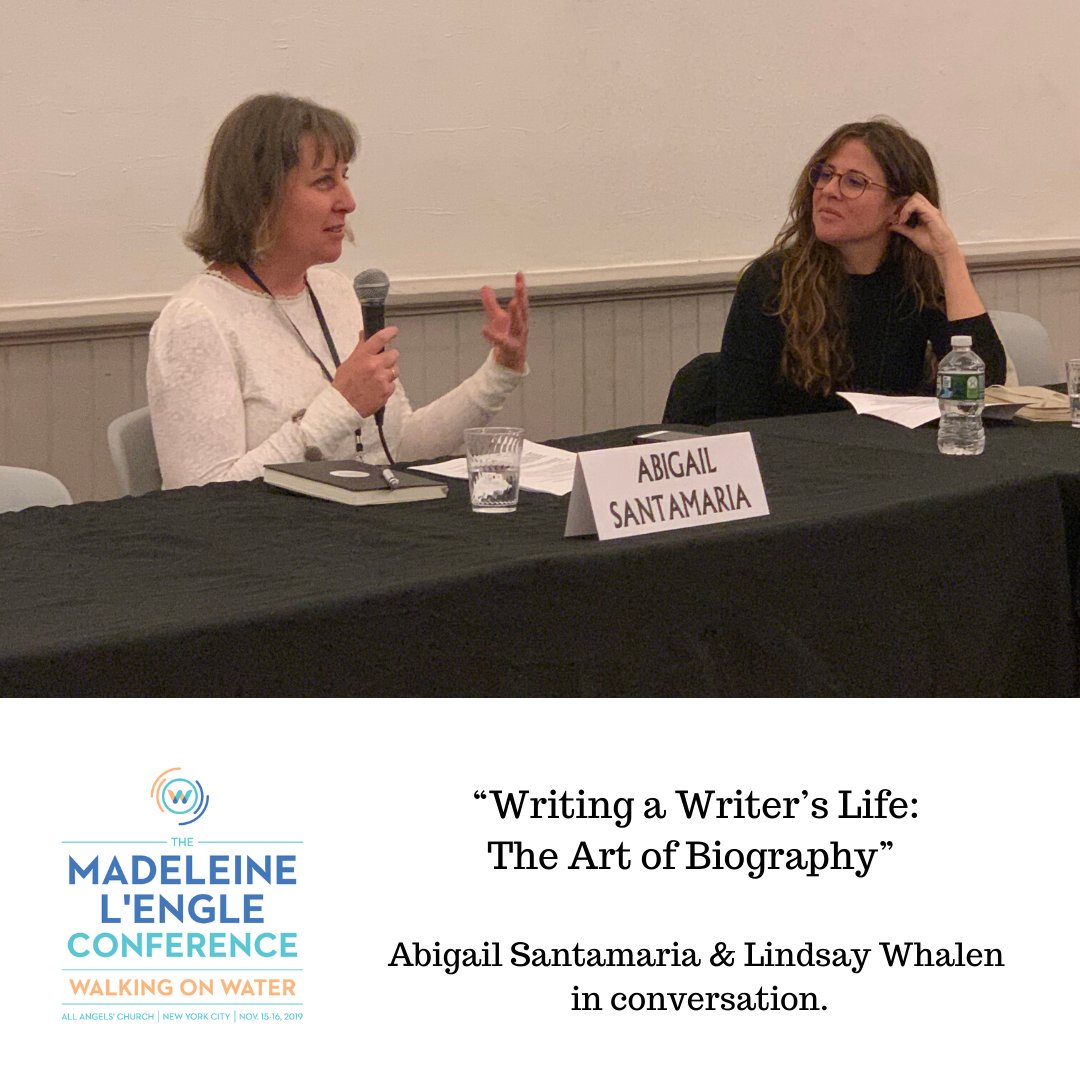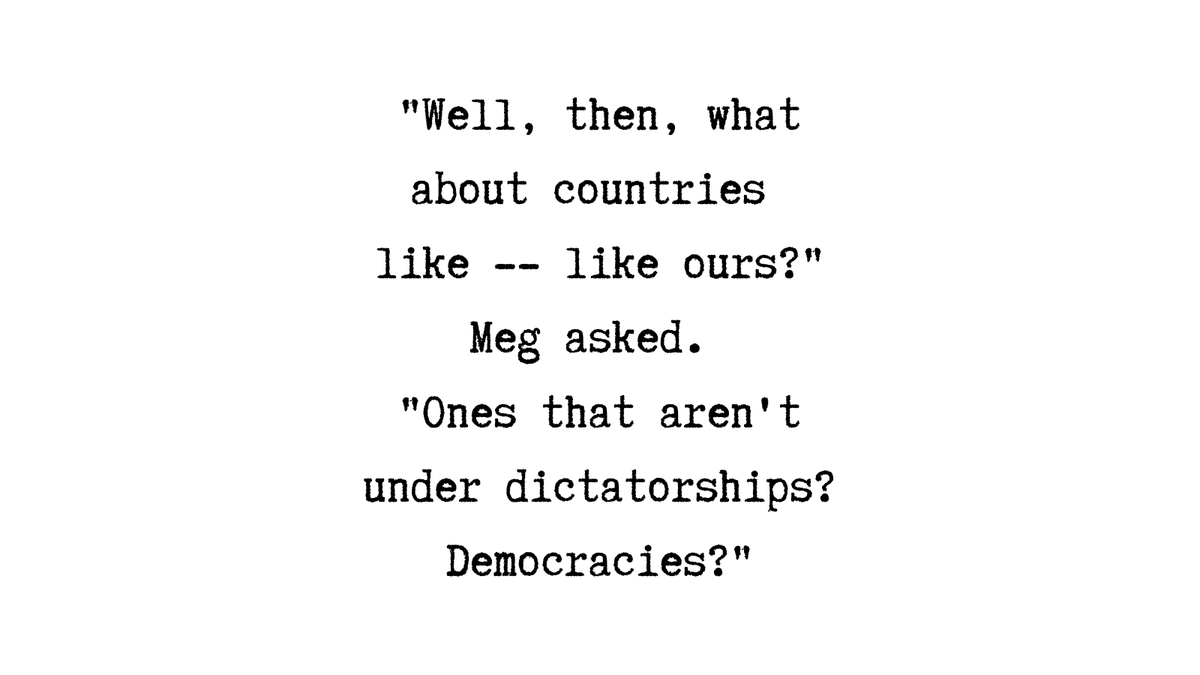A thread with photos of the #lengleconference sessions from this past weekend. Starting with @HolyDreaming's opening keynote. 

@diversebooks presents: The New Generation of Meg Murrys. With @ctrichmond @Sayantani16 @heidiheilig and @KarunaRiazi 

Icons of the True: Adapting Novels for Film. With Peter Royston, @madebyhand5 @KairosFilm and David Paterson 

Listening to the Work. With Seth Little, Albert Pedulla, Joyce Yu-Jean Lee, and @audreyassad 

Feeding the Lake: A Journaling Workshop with @Sophfronia 

Glorious Impossibles: Writing about faith for younger readers. With @olugbemisola @ibizoboi @KarinaYanGlaser and @VeeraHira 
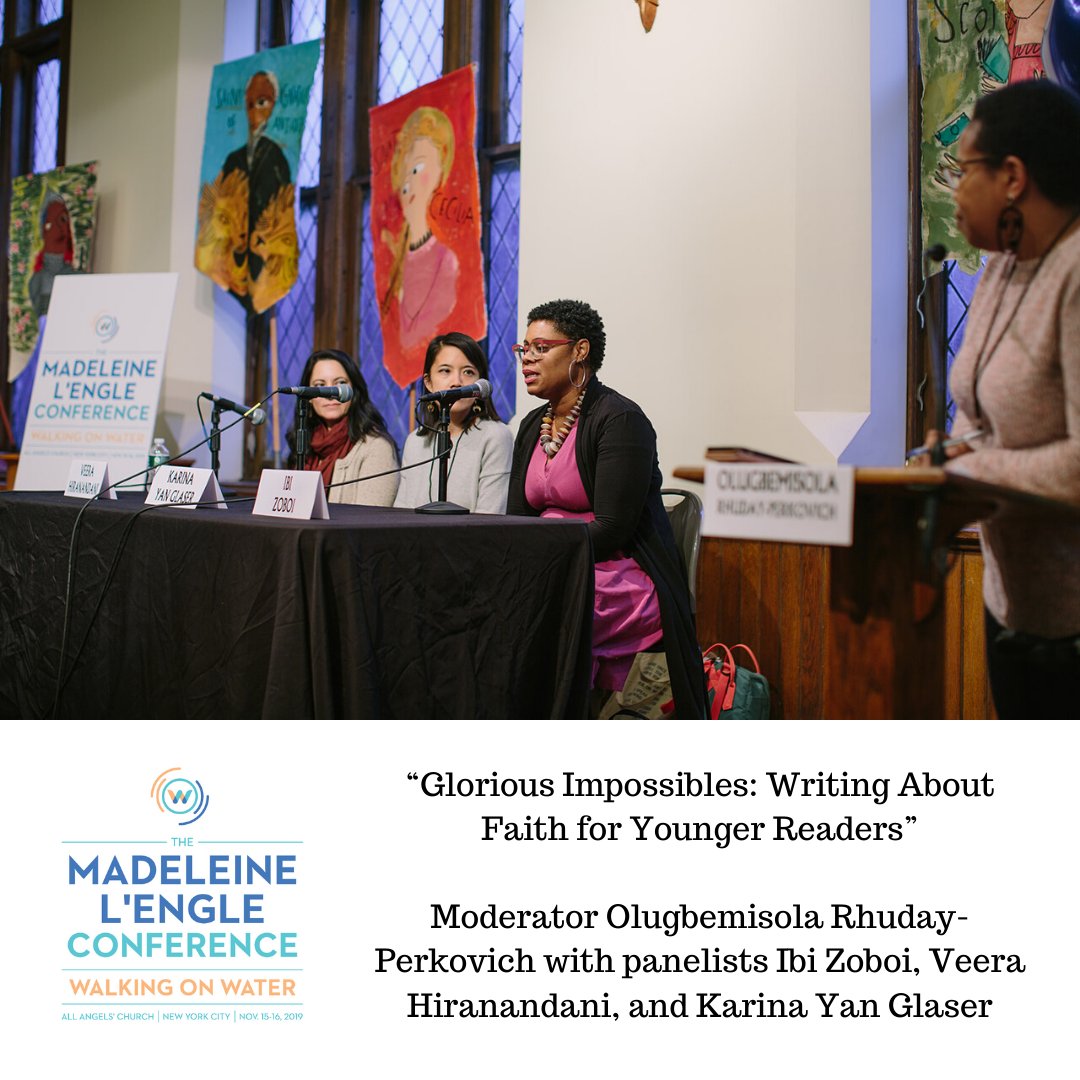
On-site bookstore by @BooksofWonder 

Reading Like Madeleine: A lunch conversation with @LindsayWrites 

Conference closing with @charlottejv 

Musician-in-Residence @audreyassad 

Many, many thanks to co-directors @HolyDreaming and @writing4urlife, host @AllAngelsChurch and additional in-kind contributors @MacKidsBooks @penguinrandom @OpenRoadMedia @smithcollege @Image_Journal
• • •
Missing some Tweet in this thread? You can try to
force a refresh

